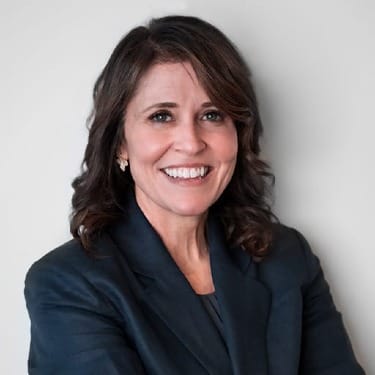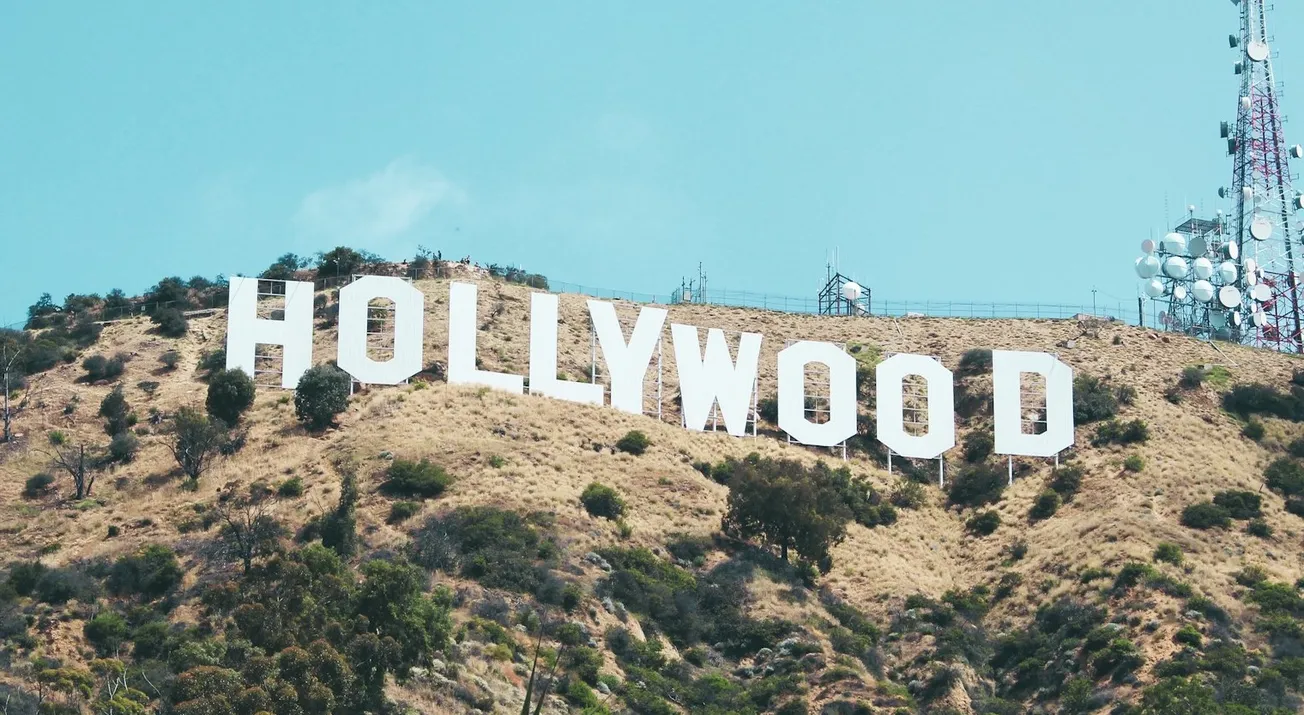Table of Contents
Anyone who has run out of money in post production, been sued for a licensing violation, hasn’t been able to claim their tax credit, or had a project otherwise derailed just before delivery knows how important post accounting is. Financial delivery is as or more important than anything else you’ll do, and productions without a good post accountant are at a high risk of failing. But a post accountant can deliver much more value than just itemization.
We spoke with Yana Collins Lehman, CEO of Trevanna Post, Inc. and chair of the Post New York Alliance, about what great post accountants do, what to consider when choosing one, how to maximize their value, and what trends she’s seeing in the industry.

Maybe we can start with a “for dummies” version of post accounting. Can you give us an overview of what post accountants do and what your day to day looks like?
Sure. And it's really not for dummies, because some people in the industry don't realize the significance of post accounting. People get their checks, and they probably assume it happened magically. And that's great, because one of the feelings that we have, at least at Trevanna, is that if we're doing our job perfectly, then the reward is silence. No one knows there ever was a problem, because it's handled before it gets on their radar.
When the production accountants turn it over to post, when all the actors go away, the thousands of people and twenty different unions are gone, the beginning of post accounting is typically the director, the editor, and the editor’s assistant creating what's called the assembly, where they take all the dailies, and they create their rough draft.
That's why we're able to work on numerous projects at the same time. With fewer people to deal with, the schedule is not necessarily easy, but it's predictable. The post schedule is traditionally set at 26 weeks average. In our experience, it always goes over.
So you're going to do your assembly, then you're going to create the director's cut, you will be folding in some music editorials, some sound editorial, you'll maybe come up with a temp score, maybe come up with some temp music. And then it gets heavy when you're doing the actual sound mix. Or if you're a really visual-effects-heavy show, change orders can be kind of exciting. But it's picture editorial, sound, editorial, music, editorial, special effects, visual effects, and then finishing.
We’re there for all of this. I like to think of us as the liaisons between the people whose money it is and the people who are spending that money. And we keep everybody chilled out by creating what is called the cost report, which is the common language that we all can talk about. What did you spend this period? What did you spend total? What do you have left to spend? We look at this information together, and then make choices about, well, what do we have left? And what are we going to spend it on? Or we're going to have an unbelievable title sequence, can we go do another day of additional photography? That's what we do.
It sounds like you have an impact on the choices that directors and editors are making for the film. Is that true? Has that always been the case?
Yes, I think because we have so much experience. I've been doing this for 20 years. And when I started, my first show that I ever was the key accountant on was “Inside Man,” for Universal. And everybody who I talked to had been in finance forever. I had these incredible mentors and they kind of taught me how to do my job. To be a post accountant, you need to have the right personality; you need to be detail oriented, you need to be calm. You don't have to be a math wizard—the accounting software is user friendly—but you're really managing personalities.
There has been a shift in the past twenty years where billionaires were giving their children billions of dollars to start studios. And those enthusiasts were hiring friends to run studios. And our job became a little different; our experience has been really important. We’ve become more like consultants, you know, to people who didn't have any experience, who we love working with.
And then also, a big shift was the invention of the tax credit. So that happened in 2004, but really expanded in 2010. And then the Post Alliance had quite a hand in making this tax credit even more aggressive in 2013, and then most recently, in 2022. And so then our job, as opposed to accountants, means you really have to be fluent in how these tax credits work. So now post accounting has to be especially completely locked in and fluent on every tax credit in the country.
So our jobs have gone from just sort of being number-crunching, diligent, detail-oriented people getting the data in and handing you a cost report to consulting also, saying based on all our experience, this is really what we think you should do. I think we're looked to for more advice, because of our experience.
What else should people in the industry know about post accounting that they often don’t?
Here's what I would say to people who don't understand what post accounting is: It's really important to your project. I'm not saying you need to pay for an A-list package for post accounting. But having someone who is dedicated to the post accounting for your project, someone who understands that taking your project through to the end and being able to account for it, is essential.
Okay, do you have a tax credit? Well, you can't hand a shoebox full of receipts to any state and have them just give you a tax credit back. It has to be organized and the ledgers are going to be audited, so you want to have someone who will have some pride in making sure they're delivering clean ledgers to whomever is going to be auditing your tax credit.
OK, no tax credit? Well, you probably have some music licenses. Those need to be paid for accurately, and the paper trail of those things need to be consistent. Why? Well, because you might be cross-collateralizing your movie and distributing it to Prague to get some of the end of your financing. And if you cannot prove to your distributors in Prague that you have a chain of title and that it's clean—in other words, if you cannot provide proof of payment to everybody who is going to have the rights to your movie—you're going to be in trouble and you're not going to be able to do it.
So you want to use a little clip of like Sanford and Son. Totally cool; it's going to make your whole scene better. All that has to be cleared, and the estate of Red Fox has to be paid.
And then the proof that all that has happened is going to need to be shared. You just aren't going to have all that planned out, especially when you're a smaller, like more independent movie.
You could wind up being the dog that catches the car, and all of your wildest dreams for your project have come true. But then you haven't planned for it, and then it can all be dashed. The financial delivery of your movie is as important as the physical delivery, the technical delivery, and the legal delivery.
So post accounting, I think, is misunderstood in its relevance and its importance. These are the people that are going to work with you to deliver your movie.
What other questions should people be asking when they're selecting a post accountant?
What other shows have you worked on? And I would really want to talk to the people who have worked with you to kind of get your track record. For us, you can see that we've worked with a lot of clients and we've worked with them again and again. That’s one of the most important questions: Would someone who has worked with a post accountant work with them again? And if the answer is yes, that means that they got their job done.
At Trevanna, we consider ourselves filmmakers, not bookkeepers; we really consider ourselves part of the process. I think you want someone like that. I think you want someone who isn't just considering this a number-crunching job.
I would make sure the post accountant’s cost fits in your budget. I’d also ask, How familiar are you with the tax credits?
I would love to dig into trends you’re seeing, and how technology is changing things. Have you seen budgets change? Are post staffs shrinking?
I'm very familiar with this, because when we were advocating for the post tax incentive, we were showing the state examples of different budgets and posts. A big budget would be $500,000. Now they're in the millions of dollars. And the reason for that is visual effects.
Visual effects have become a real efficiency to make your movie and I tell filmmakers all the time, the first call you should make is to a visual effects supervisor. They'll read your script, and they'll tell you, “Oh, you don't actually need to shoot this in Thailand, we can turn the tennis court in Queens into what you're looking for here.” And you'll save a lot of money and a lot of time. And so that's why you've seen I think visual effects budgets increase. When I look at a budget, and I'm like, oh, okay, so you're going to need $25,000 for visual effects. Yeah, that's never gonna happen. Or, you know, $25,000, for music—that's also never going to happen. So I have watched those budgets get much larger. I think that the recognition of how much can be accomplished in post has become clearer because of technology. And with modernization, post times have sped up.
I thought you might say that AI and other technologies have caused schedules and staffs and budgets to shrink. But I’m hearing that's not the case.
Absolutely not. I'm really glad you're giving me the opportunity to say that AI is not shrinking staff. AI is not stealing jobs. But AI might be able to save a little time. So for example, the big news is that there is an AI function that can take a script and dailies and create an assembly, the first stage we talked about. Okay, so you save two weeks of your post schedule—but a human with taste and understanding of the director's vision is still going to have to oversee the AI. The first assistant editor’s job might be adjusted day to day. But I believe what AI is doing is creating an efficiency, but not in deleting jobs. It's changing jobs.
Let's talk about what the editor’s job used to be. It used to be to take scissors or take an X-Acto knife and slice cellulite. That's not what the editors job is anymore. Do we have no editors? Sure. But editors have come out a little bit from behind the camera and we're aware of the significance of editors now more than ever.
So we're maybe cutting some days out of actually out of production so that we have more time to finesse things during post. And people who get out in front and know how to monetize and take advantage of efficiencies, so that we can do more jobs, or have more time in the schedule—those are the people who are succeeding here.
I have no fear of AI, and, frankly, I really hope none of the craftspeople in post or production foment said fear. To have continuous work stoppages because of this rhetoric is actually decimating our industry. I would really love for people to chill out so we can all get back to work.







